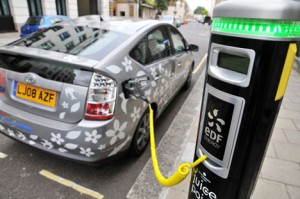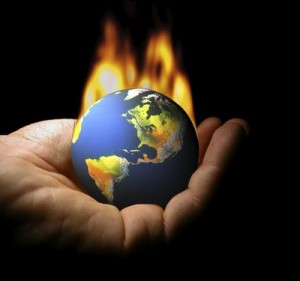Who really cares? That’s a vital question, maybe the question, in clean tech communications.
You can sit in a conference room all day hashing out your product positioning, but if you can’t get your audience to feel, you’ll never get them to act.
This truth concerns me from a life-or-death perspective as some of the most concrete, tangible, visible symptoms of our planet’s problems – the things that make us care – are fading away. We, the audience, care just a little less each day.
The BP well has stopped spewing, so the underground oil cam is boring. Tony Hayward has sailed away from the executive suite, taking his $18 million and our anger with him. The oil slick is … well, where the hell has it gone?
Climate change is at least as frustrating as oil fatigue because it’s an abstraction even as it suffocates the planet. Although it’s sweltering here in New England, global warming will seem pretty academic in December. And while the slow implosion of the ocean’s food chain isn’t as jarring as the pothole on your street, ocean warming is being blamed for a 40 percent decrease in the ocean’s algal biomass.
Plastiki gets the art of caring. The sailboat, made of 12,500 reclaimed plastic bottles, just arrived in Sydney after 128 days crossing the Pacific and spotlighting the blight of plastic trash in the ocean. It was an inspired communications gambit that has successfully given compelling physical form to an environmental concern we hardly see.
The vessel was years in the making. Sometimes it takes that kind of effort to make people care. Keep that in mind when you’re fighting the good fight for clean technology.
Sadly, bad news can be easier to care about. Although the plankton decline isn’t so scary, when Louisiana’s seafood restaurants become pasta joints, that will certainly get people’s attention.

